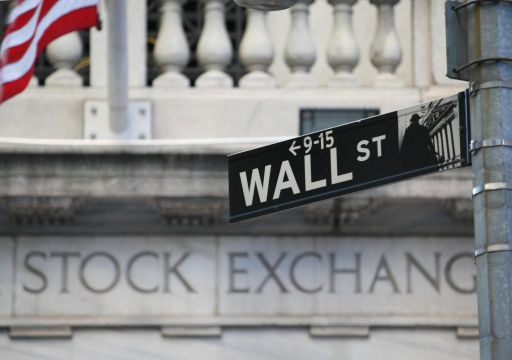Resurgent pandemic worries knocked stocks lower from Wall Street to Tokyo on Monday, fuelled by fears that faster-spreading variants of the virus may upend the economy’s strong recovery.
The S&P 500 fell 68.67, or 1.6%, to 4,258.49, after setting a record just a week earlier. In another sign of worry, the yield on the 10-year Treasury touched its lowest level in five months as investors scrambled for safer places to put their money.
The Dow Jones Industrial Average slumped 725.81, or 2.1%, to 33,962.04, while the Nasdaq composite lost 152.25, or 1.1%, to 14,274.98.
Airlines and stocks of other companies that would get hurt the most by potential Covid-19 restrictions took some of the heaviest losses, similar to the early days of the pandemic in February and March 2020.
Investors are grappling with the spreading Delta variant and the big June quarter earnings season kicks into gear this week.@ChrisJVersace and @EllesEconomy discuss: https://t.co/5jR2t1JU1B
Advertisement— Nasdaq Exchange (@NasdaqExchange) July 19, 2021
United Airlines lost 5.5%, mall owner Simon Property Group gave up 5.9%, and cruise operator Carnival fell 5.7%.
The drop also circled the world, with several European markets sinking roughly 2.5% and Asian indexes down a bit less. The price of benchmark US crude, meanwhile, fell more than 7% after Opec and allied nations agreed on Sunday to eventually allow for higher oil production this year.
Increased worries about the virus may seem strange to people in parts of the world where masks are coming off, or already have, thanks to Covid vaccinations.
But the World Health Organisation says cases and deaths are climbing globally after a period of decline, spurred by the highly contagious Delta variant. And given how tightly connected the global economy is, a hit anywhere can quickly affect others on the other side of the world.
Even in the US, where the vaccination rate is higher than in many other countries, people in Los Angeles County must once again wear masks indoors regardless of whether they are vaccinated following spikes in cases, hospital admissions and deaths.
Across the country, the daily number of Covid cases has soared by nearly 20,000 over the last two weeks to about 32,000. The vaccine campaign has hit a wall, with the average number of daily inoculations sinking to the lowest levels since January, and cases are on the rise in all 50 states.
Financial markets have been showing signs of increased concerns for a while, but the US stock market had remained largely resilient. The S&P 500 has had just two down weeks in the last eight, and the last time it had even a 5% pullback from a record high was in October.
The bond market has been louder and more persistent in its warnings. The yield on the 10-year Treasury tends to move with expectations for economic growth and for inflation, and it has been sinking since late March, when it was at roughly 1.75%. It fell to 1.20% on Monday from 1.29% late on Friday.
Analysts and professional investors say a long list of potential reasons is behind the sharp moves in the bond market, which is seen as more rational and sober than the stock market. But at the heart is the risk the economy may be set to slow sharply from its current, extremely high growth.
Besides the new variants of the coronavirus, other risks to the economy include fading pandemic relief efforts from the US government and a Federal Reserve that looks set to begin paring back its assistance for markets later this year.
Monday’s selling pressure was widespread, with nearly 90% of the stocks in the S&P 500 lower. Even Big Tech stocks fell, with Apple down 2.7% and Microsoft 1.3% lower.
Such stocks seemed nearly immune to virus fears during earlier downturns, rising with expectations for continued growth almost regardless of the economy’s strength.







